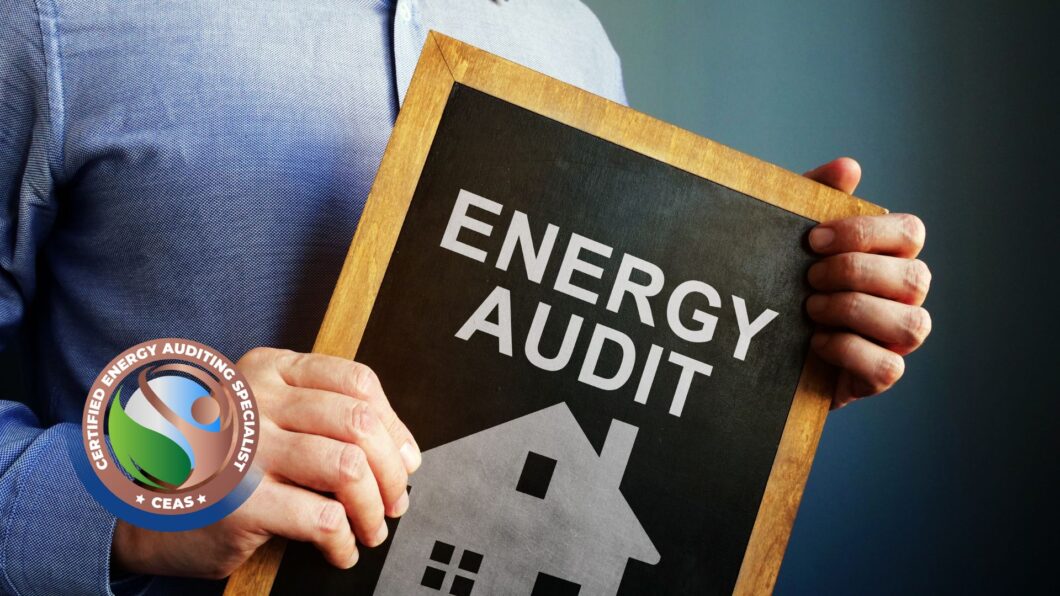Certified Energy Auditor – CEA Exam Refresher
COMING SOON….

The main objective of the Certified Energy Auditor – CEA Overview training program is to provide participants with fundamental energy audit basics such as principles, energy and the environment, energy audits for buildings, the energy audit process, and the role of energy efficiency in climate change. Furthermore, attendees will be presented with credentials that are typically associated with experts in this subject. The most important certification in the world for energy auditing. Candidate get industry and peer recognition by showing they understand energy auditing concepts, practices, and technologies by getting the CEA certification. The program improves the technical and moral standards of people who work in energy management and energy efficiency. Energy Audit Importance and Benefits
- Energy audits emerged in response to the 1973 energy crisis.
- Recent interest in energy audits has increased due to understanding of human impact on global warming and climate change.
- 20% of energy consumption is wasted due to inefficient energy management.
- Financial benefits include reduced fuel and electricity bills, lower operation and maintenance costs, and reduced capital expenditure on energy conversion plants.
- Operational benefits include improved staff comfort, better information on energy expenditure, and improved public image.
- Environmental benefits include reduced consumption of finite resources, greenhouse gas emissions, and pollutants.
- Reductions can range from 10% for efficient organizations to 60% or more at untapped sites.
- Energy benchmarking and regression methods are commonly used to assess energy consumption for buildings.
Krishnaji Pawar, an accomplished energy modeling expert, developed the Certified Energy Auditor—CEA Overview training. He specializes in developing sustainable design strategies for commissioning, environmental impact assessment, green building certification systems (LEED, GSAS, etc.), energy modeling, and environmental management systems.
- Energy audit basics
- Energy and the Environment
- Energy Audits for Buildings
- The Energy Audit Process
- What is the role of energy efficiency in climate change
- Building Performance Specialist Certifications
- Certified Energy Auditor – 120 + CEA Practice Test Questions
Energy Auditors’ Role in Energy Efficiency Assessments
- Conduct energy efficiency assessments of large buildings and industrial facilities.
- Cover building systems, occupancy, operations, maintenance, and code compliance.
- Provide detailed survey results, risk mitigation analysis, implementation plans, and final investment-grade analysis.
- Work to predefined codes and standards like ASHRAE Standard 211-2018.
The Certified Energy Auditor (CEA) certification is a globally recognized designation in the building performance and energy service industries, attracting over 10,000 professionals from 40 countries. It provides numerous benefits for professionals seeking recognition of their industry expertise or a required designation for a specific position or project.
Other Related courses
Certified Energy Auditor – CEA Exam Question Bank
The Certified Energy Auditor (CEA) Exam Question Bank includes 600-questions CEA Practice Exam enables energy management and service professionals to create a personalized study path for professional growth.
Key Learning Objectives
- Assess knowledge before final exam.
- Test questions similar to actual exam questions.
- Over 600 questions in five mock exams ranging from easy to expert.
- Understand reasoning behind each question and answer for restudy or revision.
- Cover CEA Exam Knowledge Domains.
- Familiarize with CEA knowledge domain and terminology.
- Includes 181+ key terminology and study flash cards.
Certified Energy Manager – CEM Exam Question Bank
 The Certified Energy Manager (CEM) Exam Question Bank consists of multiple-choice questions. The students will be able to assess their knowledge and ability to finish the exam with the required score by practising six hundred questions in five simulation exams to be completed in four hours each. The simulation exams are applicable for the latest version of the Certified Energy Manager (CEM) training material.
The Certified Energy Manager (CEM) Exam Question Bank consists of multiple-choice questions. The students will be able to assess their knowledge and ability to finish the exam with the required score by practising six hundred questions in five simulation exams to be completed in four hours each. The simulation exams are applicable for the latest version of the Certified Energy Manager (CEM) training material.
Key Learning Objectives
- Assess knowledge before final exam.
- Test questions similar to actual exam questions.
- Over 600 questions in five mock exams ranging from easy to expert.
- Understand reasoning behind each question and answer for restudy or revision.
- Cover CEM Exam Knowledge Domains.
- Familiarize with CEM knowledge domain and terminology.
- Ensure exam pass on first attempt.
- Includes 208+ key terminology and study flash cards.
- Includes new CEM_Engineering and HVAC Design Equations.



